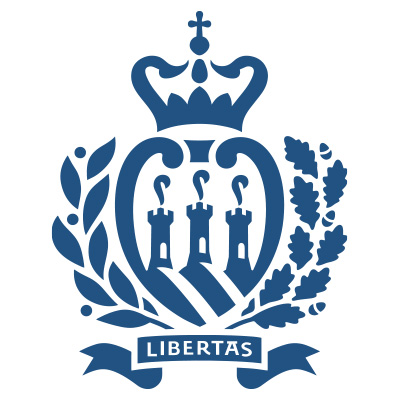On October 14, 2024, the Ministry of Foreign Affairs of San Marino hosted the conference “Un membro delspects of Constitutionalism in European Small-sized States”. Organised by the Venice Commission of the Council of Europe, the event brought together legal experts and representatives of the Council of Europe and its monitoring bodies.
The panels focused on five European countries: the Repubblica di San Marino, the Principality of Andorra, Principality of Monaco, Principality of Liechtenstein e Malta, highlighting their efforts in respecting the international constitutional standards, the unique challenges they face because of their small size and demography and how the legal solutions they implement to adapt.
The specific features of Small-sized States are unique, and they shape not only their internal structures, but also their relationships with the international community. On this topic, Consul Maurizio Bragagni was interviewed by Isabella Ghisalberti, an intern of the Honorary Consulate of San Marino in London, to share his perspective as a representative of one of these countries.
In your opinion, what advantages and disadvantages come from the small size and demography?
When talking about Small-sized States, it’s important to consider their history. These States have always seen themselves as independent communities, free from external authority. Throughout history, they had to resist other powers; for example, San Marino resisted control from the Pope. Today, their statehood has been recognised by the United Nations, as they meet the three essential criteria: a defined territory, an independent government, and a permanent population which, in the case of small States, is fewer than 2 million citizens.
In such States of the government and freedom of the citizens are highly valued. In San Marino, civil liberty is a defining feature of national identity, represented on the flag with the word “Libertas”. The small population offers a significant advantage: greater accountability of political leaders. A perfect example is the Sindacato della Reggenza, a mechanism allowing any citizen who believes they’ve suffered injustice at the hands of the Captains Regent to bring the matter before a judge once their term ends. This ancient law is still regularly used today.
On the other hand, a small population also presents some challenges. Small States require the same kind of infrastructure of regular-sized States, but might not have the same amount of resources available. They must rely on international Organisations and neighbouring countries. A great example is diplomacy. While it’s essential for small States to maintain international relations, they often can’t afford a full diplomatic corps. Instead, they appoint honorary representatives, as allowed by the Vienna Convention. In my case, I serve as an honorary Consul: the government of the United Kingdom accepted me as representative of San Marino.
How does being involved in the international community favour small-sized States? San Marino in particular
Participation in the international community is especially important for Small-sized States like San Marino. In international multilateral fora, such as the European Union or the United Nations, each State has a vote, meaning that San Marino holds the same formal weight as larger States. These platforms give small-sized States a voice. However, the recent US administration shifted away from multilateralism toward bilateral negotiations, where power imbalances are clearer: one party can dictate terms and apply pressure, making the whole process less fair.
As the international community weakens, small States lose their voice. For global peace and the stability of the world, multilateral fora are essential. A perfect example is the many States that have been affected by climate change, despite contributing very little to global pollution. It is important to give them access to a strong international platform. Saving the small islands in the Caribbean or the Pacific is not only about protecting local communities, but also about safeguarding the future of the entire world.
Do you think these advantages are different from those of regular-sized States?
After World War II, the international community was created to ensure that every State, regardless of size, had a voice and weight in global affairs. We all live under the same moon and stars: what affects people in small States also affects those in larger ones. Relying on strength and power alone eventually leads to conflict, which benefits no one. In the end, using size as a tool of dominance is not a true advantage. Real progress comes from cooperation, equality, and mutual respect among all States.
Is it harder for small States to adhere to international standards?
In general, yes, but it depends. International standards and treaties are created in international fora, where small States have a vote and can help shape those standards. Problems arise when powerful nations impose standards unilaterally. For example, if the USA imposes terms on exports that conflict with European law, all countries may be negatively impacted. If the standard comes from a multilateral agreement, such issues are less likely to occur. The real issue is when one State imposes a rule that benefits only itself; this leads to resistance and creates more complex challenges, especially for small States.
Do you think the institutions of San Marino are doing enough to address the issues caused by its small size? What could be improved, and which measures, of the ones already in place, are the most effective?
San Marino does not follow the French republican model based on a strict separation of powers. Its institutions are rooted in much older traditions, inspired by the Roman Republic. In 1301, San Marino’s founders created a self-governing community to escape persecution and designed institutions they believed would protect their values and independence.
One of the most distinctive features of San Marino’s system is the dual head of State, the Captains Regent, who jointly hold executive, legislative, and judicial authority during their six-month terms. Although power is temporarily concentrated in their hands, having two individuals share the role and limiting their term to six months helps prevent the accumulation of power. This principle is similar to the UK’s monarchy in theory, where the sovereign holds all three powers but delegates them to institutions by tradition. In San Marino, this delegation is embedded in practice through regular, peaceful transitions.
While the system works well for San Marino and reflects its unique values, it does bring some challenges. The short duration of each regency can slow the legislative process and limit long-term policy planning. However, this same structure ensures strong checks and balances, as power is not centralised in a single individual. San Marino has also demonstrated flexibility by adapting its legal framework and institutions to meet contemporary needs. Although the implementation of some international commitments can take time, this delay often reflects active internal debate rather than resistance, showing that democratic discussion and adaptation are alive within the republic.
In conclusion, while there is always room for improvement, San Marino’s institutions have proven to be remarkably resilient and well-suited to the needs of its small population. The balance between historical tradition and modern reform continues to be one of the country’s greatest strengths.
Is San Marino involved in cooperation with other small States? If so, through which initiatives?
Yes, San Marino actively cooperates with other small States through various regional and international initiatives. One example is its involvement in the United Nations Forum for Small States, where members collaborate on key global issues. In sports, small States have created their own football tournament: the Games of the Small States of Europe.
Historically, small States have also played a role in peacebuilding, for instance, after the dissolution of the Soviet Union, small countries helped facilitate peaceful transitions and supported the independence of the Baltic States. Moreover, small States frequently support one another in multilateral settings. The Helsinki Final Act, which is an agreement for peace and cooperation in Europe, was strongly influenced by the advocacy of small States.
San Marino also takes part in other international institutions such as the European Bank for Reconstruction and Development (EBRD), where it contributes to regional development goals.
What are the relations between San Marino and regular-sized States? What features of small-sized States make them valuable allies for larger States? (Italy in particular)
San Marino maintains strong and friendly relations with regular-sized States, particularly with its closest neighbour, Italy. Their relationship has been marked by moments of solidarity, for example, during World War I, when many Sammarinese citizens volunteered to fight alongside Italian forces. During World War II, San Marino offered refuge to Italian civilians and Jewish people fleeing Nazi occupation, further strengthening the bond between the two nations.
Another strong relationship was with the USA; President Lincoln was an honorary citizen of San Marino. In 1861, the Civil War started, and, as Lincoln was wondering if the republic was the right choice, he received a letter of support from the oldest republic in the world. In response, Lincoln acknowledged their friendship, praised their values, and accepted honorary Sammarinese citizenship, despite never visiting the country
In addition, San Marino has cultivated practical and diplomatic ties with numerous other States, particularly those where Sammarinese communities have emigrated, such as Argentina, Canada, France, and the United Kingdom. These relationships are supported by a growing number of bilateral agreements — over 108 — including treaties on double taxation and economic cooperation.
Through both historical goodwill and modern diplomacy, San Marino continues to foster meaningful and mutually beneficial relationships with larger States around the world.
What are the relations between San Marino and regional and international organisations?
San Marino has always maintained a strong regional presence, especially through its active participation in Adriatic fora. It has established important ties with neighbouring Adriatic countries, particularly Croatia, with which it has signed key agreements and led regional initiatives
Beyond the Adriatic region, San Marino is a member of the Council of Europe and is deeply engaged in European affairs. It has also been active in international fora, particularly in advocating for the abolition of the death penalty and the promotion of human rights. Its clear and consistent stance on these issues has allowed it to have a strong voice, including through platforms such as UNESCO.
San Marino continues to be an active participant in global causes. Recently, it has taken steps to address environmental challenges — for example, by implementing new mobility policies. Although it is a small State, it often plays a leading role in advancing important causes on the international stage.
How does the small size of the State you represent influence your diplomatic activity?
In general, we follow the indications of the Foreign Affairs Department, but at the same time, I have a lot of freedom of action in promoting and representing the country. As a Consul, I have to take care of the interests of citizens in the United Kingdom and the interests of the country. It has been a great honour for me to be appointed in 2019. During my tenure, we had a lot of challenges, like the COVID-19 pandemic, when we had to be vocal about San Marino’s difficult situation.
We have been able to achieve the double taxation agreement and helped the two States and banks communicate and share data transparently. We also created a welcoming space at the consulate for Sammarinese citizens, helping with everyday issues and offering a place for participation and community. It was a true honour that our work was recognised with the Order of Saint Agatha. We have done a great job and hope to be able to carry on!

